As a holiday let owner you have a duty of care to your guests. That means you’re legally obliged to provide safe accommodation and do everything you can to minimise the risks from potential hazards. To do so properly, it’s imperative to know and understand the relevant health and safety regulations for holiday lets when letting your property.
Here we aim to highlight the main points to consider and comply with. As well as practical steps to implement at your holiday let to make sure you are compliant with health and safety regulations.
Health and safety regulations for holiday lets
Looking for something specific? Use our quick links below or read on for our comprehensive guide on health and safety regulations for holiday lets.
General holiday let health and safety requirements
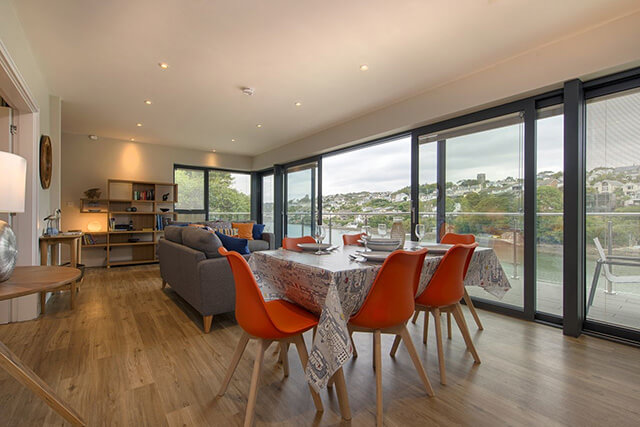
At first glance, understanding the requirements and regulations it may seem complicated. But, once you understand the fundamentals and ensure the basic health and safety regulations for your holiday let are in place, it’s all pretty straightforward.
Why is holiday let health and safety compliance important?
As a holiday let business owner, managing health and safety effectively is important not only for the wellbeing of your guests, but also to reduce your liability in event of an accident. Ensuring that your holiday let is compliant and safe environment, will allow both you and your guests to relax in the knowledge that potential risks have been eliminated.
How to ensure your holiday let is health and safety complaint?
The best place to start is the general health and safety at your property that can often be overlooked.
Identify any obvious hazards
Use logic and identify the obvious risks that your guests could encounter. Use that as a starting point to implement precautionary measures. These could include some of the following:
- Provide handrails for staircases
- Make sure that access paths to the property are clear and safe
- Balconies have property railings in place
- Identify and correct any slip or trip hazards
- Child proof your holiday cottage if it is family-friendly
- Provide warnings if there are any potential risks, like low ceilings or unseen steps
Use a guest information folder to provide important information about your property with clear instructions on health and safety protocols. It’s also advisable to leave relevant phone numbers and instructions in the event of an emergency.
For detailed advice and guidelines, read the HSE guidance on simple health and safety for useful resources and practical suggestions.
Holiday let safety requirements
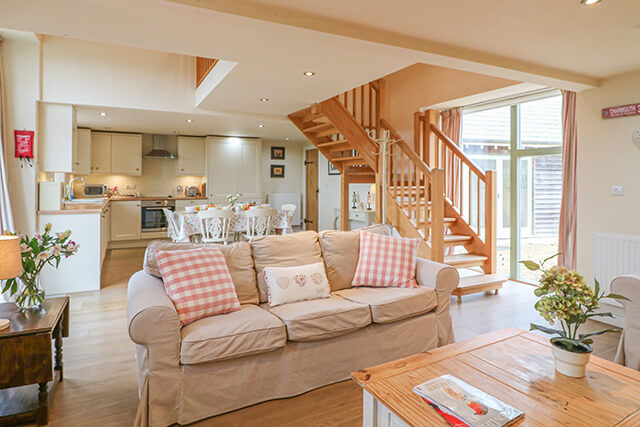
Here we aim to highlight what holiday let health and safety requirements there are in order to manage a safe and legal holiday letting business.
Fire regulations for holiday lets
There is a risk of fire present in any home and there are things you can do to reduce this risk and ensure the safety of your guests and holiday cottage. Correctly understanding fire safety is essential and a legal requirement as an owner.
All properties must comply with the Regulatory Reform (Fire Safety) Order 2005 (England & Wales). Part of this obligation is to have a fire safety risk assessment.
Fire safety risk assessment
It is a legal requirement to carry out or arrange a fire risk assessment. It is used to highlight potential fire risks and hazards at your holiday let. The three main areas of the risk assessment are:
- Identify fire hazards
- Identify people at risk
- Evaluate the risk
Step 1 – Identify fire hazards in your holiday let
A fire needs three things to start – a source of ignition, fuel and oxygen. So, with these in mind, systematically list potential areas that might present a potential problem.
- Things that could start a fire: Faulty equipment, cooking, portable gas heaters, open fires or log burners.
- Anything that could allow the fire to develop and spread: Flammable material, furniture, decorations and wall coverings.
- Sources of oxygen: Windows, doors, ventilation and air conditioning systems that not only supply fresh oxygen to an area but can provide a route for a fire between rooms.
By identifying these, steps can be taken to reduce their risk, such as installing a hearth around a fireplace, ensuring furniture is fire retardant and installing fire safe doors throughout the property.
Step 2 – Who is at risk?
The next step of the fire risk assessment process is to consider the people who might be at risk from a potential fire in your holiday let. Have you catered for vulnerable guests that may include children, elderly or disabled people who may stay in your property? It’s important that your emergency plan is suitable for everyone staying in your holiday let.
Step 3 – The fire safety measures you need to put in place to keep guests safe
Once you have considered the fire risks and who is at risk, you need to look at the practical things you can do to prevent a fire from happening and keeping people safe if there is.
- Provide smoke detectors: Make sure these are of good quality and installed on each floor of the property as a minimum. Have the batteries checked regularly or invest in a mains powered system.
- Create an emergency plan/fire action notice: Detail what guests need to do in the event of a fire, including procedures for a safe evacuation.
- Firefighting equipment: A multi-purpose extinguisher on each floor near the stairs and a fire blanket in the kitchen should be enough in most small premises. You will need to make sure that instructions on how to use them are clear, and that there is a warning to people not to tackle anything other than a very small fire. Evacuating the premises is always the safest thing to do.
You as the property owner can carry out the fire risk assessment, or you can use a qualified fire consultant to do this to ensure the safety of your guests.
For more detailed information on complying with the fire safety law for holiday lets and a downloadable fire risk assessment, click on one of the useful guides below:
https://www.visitbritain.org/business-advice/complete-your-fire-risk-assessment
https://assets.publishing.service.gov.uk/government/uploads/system/uploads/attachment_data/file/11085/payingguests.pdf
Gas safety regulations for landlords
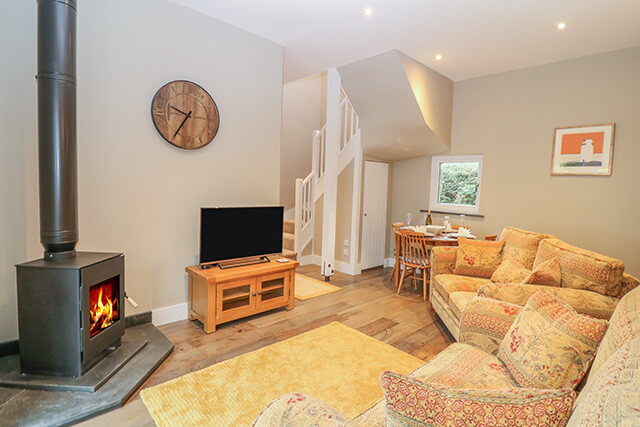
The gas safety standards and guidelines for holiday let owners is clear. If your property has a gas supply, all appliances and flues are installed correctly, maintained and properly tested.
Gas Safety Certificate
The HSE guidance on gas safety stipulates that all gas appliances are checked and signed off by a Gas Safe Engineer annually. A valid certificate should be left at the property for guests to see.
Carbon monoxide alarms
Carbon monoxide alarms are a cost effective and reliable way to provide guests with an advanced warning of any problems. Each room that has a gas appliance, oil appliance, or a solid fuel burner (log burner or open fire) must have an alarm installed.
There is plenty of guidance available to help you comply and useful information can be found on the HSE website.
Oil safety requirements for holiday lets
Many holiday properties are in locations that do not have access to mains gas. Oil can be used as a gas replacement for boilers and other oil-fired equipment. But faults in oil appliance and storage pose a serious risk of carbon monoxide poisoning.
By law, you must have any oil-fired appliance and equipment serviced in accordance with the manufacturer’s instruction. It is also important to know the governments guidance on storing oil at your property.
Oil Safety Certificate
There is no legal requirement for holiday let owners to have an Oil Safety Certificate. But, for the safety of your guests, it’s highly recommended that you have all your oil appliances and equipment inspected by annually by an OFTEC Registered Technician. They will supply you with an Oil Installation Check form (OFTEC CD/12) which confirms that you have done your duty as an owner to make sure your property is safe and compliant.
Electrical safety compliance for holiday lets
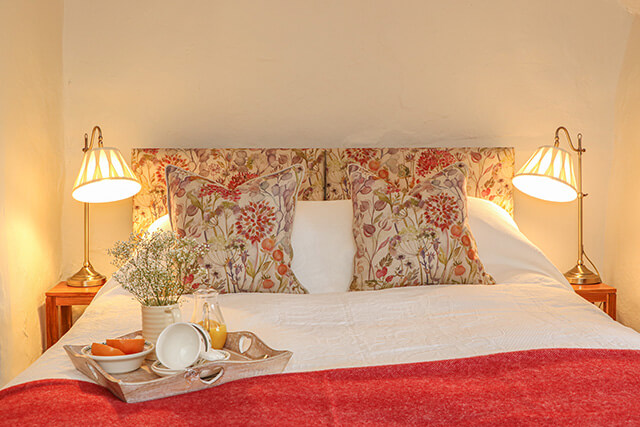
To help safeguard your property and the safety of guests, an owner has a duty of care to ensure that all aspects of a property’s electrical system and any electrical devices in the property are safe and regularly checked.
Electrical Safety Certificate
There is no legal requirement for a landlord to obtain and renew an Electrical Safety Certificate, but it is however suggested having a property inspected by a qualified engineer, at least every five years, ensures electrical systems within the property are safe. A valid certificate provides proof that reasonable care and checks have been carried out. For more information, visit the government’s guide on electrical safety standards for landlords.
PAT testing
Holiday let owner’s duty of care applies to both installed and portable electrical appliances. That means any moveable items (toaster, TV, kettle, lamps etc) should be PAT tested by a reputable electrician. Portable Appliance Testing (PAT) is the examination of electrical appliances, checking them for safety from potential defects and hazards.
Here at Helpful Holidays, we work with many trusted tradesmen and contractors, do let us know if you would like us to put you in touch.
Hot tub and swimming pool health and safety

Having a luxury addition in a holiday home like a hot tub or swimming pool definitely makes a property more appealing to guests and adds a great holiday experience. According to the Sykes Staycation Index there has been an increase of 62% of guests seeking properties with hot tubs and properties earning 54% more than those without.
However, they do come with risks, so it’s important to make sure they are well maintained and safe to use at all times. It’s vital to carry out a risk assessment and ensure you take reasonable precautions to prevent accidents.
The Health and Safety Executive (HSE) has a useful guide on managing health and safety in swimming pools as well as steps and guidelines on hot tub health and safety guidance.
Covid cleaning and care
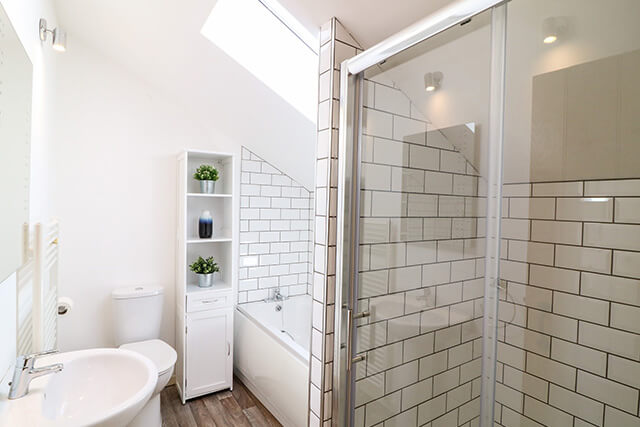
Now more than ever, it’s important to ensure your cleaning procedures are thorough and measures are taken to thoroughly clean and disinfect your property before arrivals. In a post-Covid world the duty of care extends to taking reasonable precautions to minimise the risk of the virus being spread from one group of guests to another.
The government website has a detailed explanation on how to carry out a COVID-19 risk assessment for your holiday home.
How to protect your investment
Doing your best to ensure your guests health and safety is paramount, but it is just as vital to make sure that you and your holiday let business are protected.
Holiday let insurance is a specialist form of cover required when renting a property to guests. Not only will it provide adequate cover for the building and its contents but having public liability will cover the legal costs and expense if a guest is injured while staying at your property.
Keeping guests safe

Staying up to date with the latest legislation changes set, by the Health and Safety Executive (HSE), is essential for anyone in the industry in order to protect themselves and their guests. There are plenty of resources available that will help you manage the health and safety practices and help you understand your responsibilities on how to run a safe business.
For details information, head over to the HSE simple health and safety guide for a range of resources.
Holiday let owner advice
Ensuring your property is health and safety compliant can make a world of difference to you and your guests. Follow the guidance above and you’ll have peace of mind that you took the necessary steps to ensure the safety of your guests as well as reduce your chances of being found negligent.
Here at Helpful Holidays, we’re happy to work with you to ensure that your holiday let meets all the necessary health and safety requirements. Below are a few other helpful guides to ensuring you understand the necessary rules and regulations to being a successful letting business.
For more useful tips, head over to our Owner Advice blog.
At Helpful Holidays, our team of holiday letting experts are on hand to offer advice. We’re happy to help answer any questions you may have on a particular subject. Find out more about letting with us, request your FREE guide or call our team on 01647 433593 today.
Please Note: The information contained in this article was accurate at the time of writing, based on our research. Rules, criteria and regulations change all the time, so please contact our prospective new owner team if you’d like to hear how. Nothing in this article constitutes the giving of financial, tax or legal advice to you; please consult your own professional advisor (accountant, lawyer etc). in this regard. If we have referred within the article to a third-party provider of unregulated holiday let mortgages, this is due to the fact that such mortgages aren’t currently regulated by the FCA.
As a helpful reminder, your home may be repossessed if you do not keep up repayments on a mortgage, so again anything you decide to do in this particular area this is one on which you should take your own professional advice on too, as we aren’t providing and can’t provide you with this.